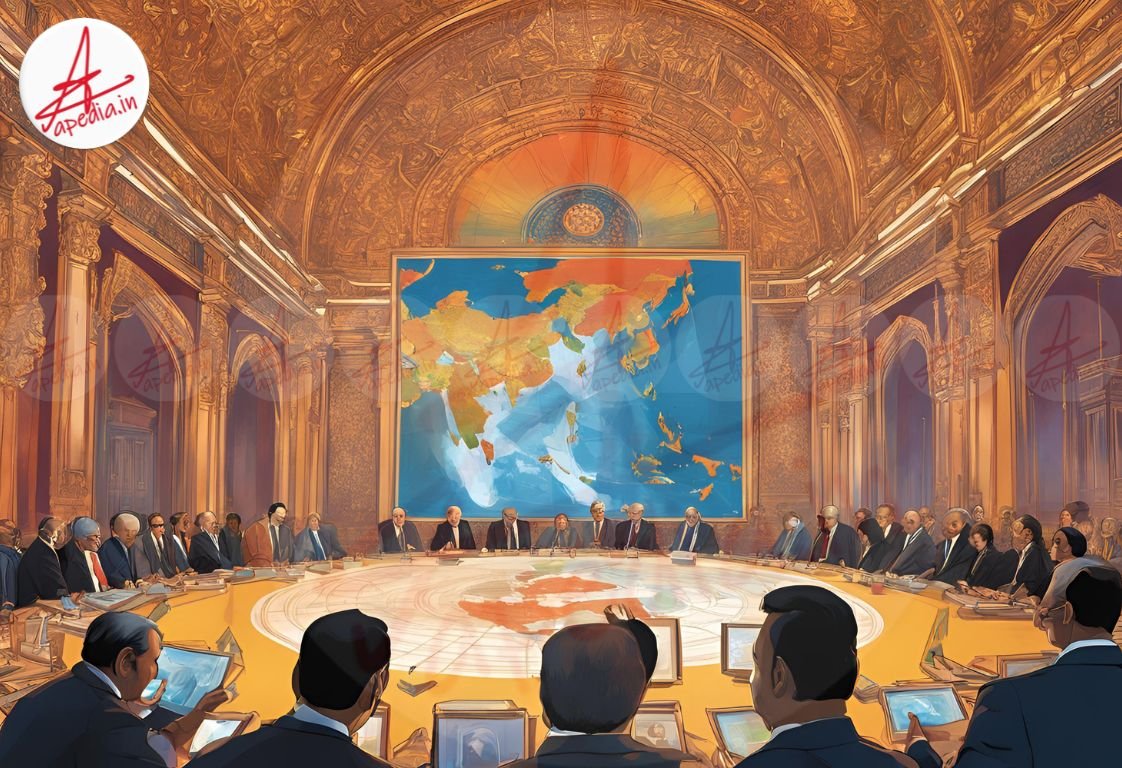India’s foreign policy has historically avoided alignment with major global powers.
Advocacy for peaceful coexistence and dialogue underpins India’s international stance.
Strong emphasis on respecting national sovereignty and territorial integrity.
India’s relations with China and Pakistan are marked by significant challenges.
India’s economic growth drives its global partnerships and trade efforts.
India is increasingly influential in international organizations and global governance.
Guiding Principles and Objectives
Neutral Stance in International Conflicts
Historically, India has championed a policy of non-alignment, choosing not to align itself with any major power bloc. During the Cold War, this meant steering clear of alliances with either the United States or the Soviet Union. By doing so, India could maintain autonomy in its international dealings, thereby pursuing national interests without succumbing to external pressures or influences.
Advocacy for Peaceful Coexistence
India strongly promotes the idea of peaceful coexistence among nations. The country believes in resolving conflicts through dialogue and diplomacy rather than through confrontation. This approach is coupled with a commitment to disarmament and non-proliferation, reflecting India’s broader vision of a harmonious international order.
Respect for Sovereignty
The principle of sovereignty is central to India’s foreign policy. India staunchly defends the territorial integrity and sovereignty of nations, opposing any form of interference in internal affairs. This respect for national self-determination underscores India’s approach to international relations and its support for the right of countries to determine their own paths.
China-India Relations
The relationship between India and China is notably complex, characterized by both cooperation and tension. Although both nations have worked to maintain a peaceful bilateral relationship, disputes over their shared border have led to intermittent friction. The challenge lies in managing these tensions while exploring opportunities for economic and strategic collaboration.
Pakistan-India Relations
The enduring rivalry with Pakistan, particularly over the Kashmir issue, remains a significant challenge. Despite attempts at dialogue and peace initiatives, recurring cross-border incidents and political instability have strained efforts to improve relations. This ongoing dispute continues to shape the security dynamics in South Asia.
Nuclear Proliferation
India’s nuclear capabilities have attracted global attention and scrutiny. While India asserts that its nuclear arsenal is intended solely for defensive purposes, concerns about regional stability and nuclear proliferation persist. Balancing its strategic needs with international concerns is a key aspect of India’s nuclear diplomacy.
Economic Diplomacy
With a rapidly growing economy, India has become an attractive partner for many nations. The country’s economic diplomacy focuses on enhancing trade relationships, attracting investment, and forging economic partnerships. This aspect of foreign policy is crucial as India positions itself as a major global economic player.
Global Governance
India has progressively become more active in international organizations such as the United Nations, the Group of 20 (G20), and the Commonwealth. It advocates for a multipolar world order and calls for reforms in global institutions to better reflect contemporary geopolitical realities. India’s role in global governance continues to expand, highlighting its growing influence on the international stage.
United States
The strategic partnership between India and the United States has strengthened significantly in recent years. Cooperation spans various domains, including defense, trade, and technology. This relationship has evolved into a robust alliance, reflecting shared interests and mutual benefits.
Russia
The historical relationship between India and Russia dates back to the Soviet era. Russia remains a key supplier of military equipment to India, and the two countries collaborate extensively on defense, energy, and space exploration projects. This longstanding relationship continues to be a cornerstone of India’s strategic interests.
China
Despite a complex and sometimes contentious relationship, India and China have also sought to build economic ties. Cooperation in trade, infrastructure, and technology has been a focus, reflecting a pragmatic approach to managing differences while leveraging mutual benefits.
European Union
India has cultivated stronger ties with the European Union, emphasizing trade, investment, and cooperation in areas like climate change and renewable energy. This partnership is an important facet of India’s strategy to engage with major global economies and address global challenges collaboratively.
India’s international relations are characterized by a dynamic interplay of strategic principles and evolving global interactions. As India continues to assert its influence and adapt to global changes, its foreign policy will play a crucial role in shaping international relations and addressing global challenges.



